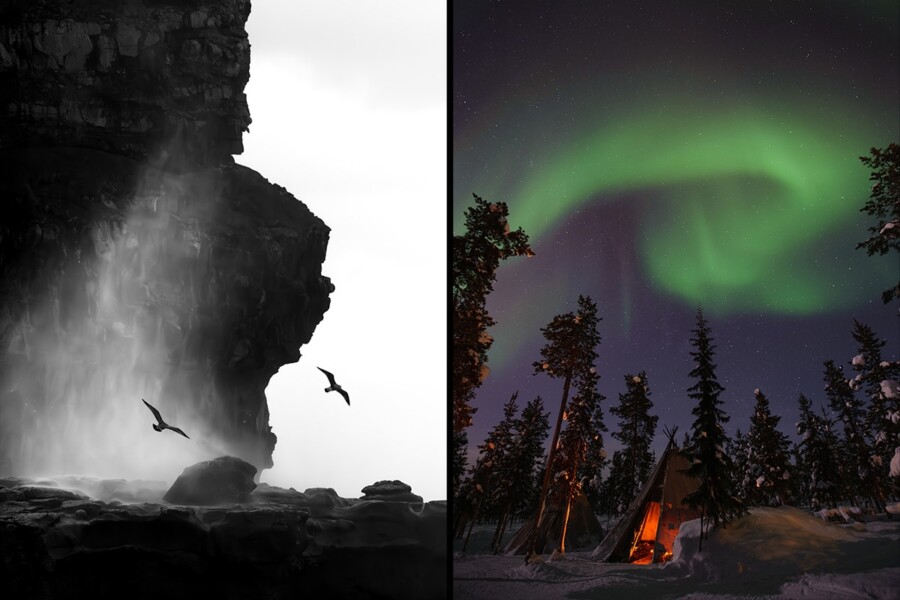Share
How To Spot A Great Web Designer From 25,000 Miles Away
People are always asking me for the names of web designers who I trust, and to be honest, finding a good web designer is not easy. There’s no sho...

People are always asking me for the names of web designers who I trust, and to be honest, finding a good web designer is not easy. There’s no shortage of them out there, though. Search “web designer” in Google and you’ll soon be overwhelmed with choices from designers with incredible looking websites and work samples from all over the globe.
But how can you read between the lines and find one that will be right for you?
With that in mind, I’ve decided to share the 5 things I look for when evaluating a web designer. Quite simply, I look at their work and evaluate them based on their past performance, not solely on what they say about themselves on their website.
If you’re in the market for a web designer that really “gets it” when it comes to photography, I hope you find this list helpful.
Finding a Great Web Designer: 5 Things To Look For
1) He/she is an SEO fanatic.
Search Engine Optimization is such a critical concern for websites, that it really needs to be factored into the site’s design right from the very start. When evaluating a designer, I always start by looking at how they approach SEO. The sites they’ve created – do they contain lots of keyword-rich text? Does the site have a URL structure that contains useful keywords? Do images have captions and alt tags? Do the links within the site contain informative keywords?
I also like to see evidence that the designer was deliberately thinking about the keywords that mean the most to a photographer, and has incorporated these keywords throughout the entire site.
It might also be a good idea to see how the sites they’ve already built are doing within Google. Start doing searches for terms that apply for their past customers, and see where the site shows up in the rankings.
2) It’s about your photos, not their design.
A really good designer knows that they are only successful if the website allows the images to play the dominant role in a viewers experience. You don’t want a customer coming to the site, and the first thing that enters their mind is “Wow, look at this website design!” Your pictures should be front and center, and the design of the site should fade into the background.
Too often, I see overly-designed photography websites that detract from the images. A great designer knows that simplicity is the best approach for you and your customers, and isn’t trying to use your website to impress his/her designer friends.
3) He/she doesn’t rely on Flash.
There’s no secret here – I hate Flash. I think it’s yesterday’s gimmick, and it’s going away. I’ve been saying this for years, and it’s becoming quite obvious that sites built entirely in Flash put photographers in a disadvantage.
If you’re looking at a web designer’s portfolio, and it contains mostly Flash-based designs, you should request to see HTML/CSS examples. (Or just find someone else who fully embraces HTML.)
If you are talking to a designer, and they keep trying to push you in the direction of Flash, let serve as a red flag warning for you. If they are only comfortable working in Flash, then they’ve most-likely already failed at point #1 (above.)
Flash is not 100% evil, though. It does have some very legitimate uses, like embedded video, animated/interactive charts and graphs, and slideshows. But you should never build an entire website in Flash. There’s no need for that today.
4) They don’t leave the hard stuff to you.
Here’s a pet peeve of mine: Designers who supply you with a Photoshop file that contains their design, and expects you to go out and find someone else to actually turn it into HTML. Screw that. If a designer tells you that they don’t “do coding,” then don’t bother with them.
I’m not expecting every designer to be a coding genius, but I do expect a web designer to know HTML and CSS at the very least. If they aren’t able to write PHP code or Javascript, or build WordPress templates, then they should have a partner that can do this for them.
The point is – you are a photographer, not a website project development manager. The designer should be able to deliver a fully-functional site, and leave nothing up to you. That’s what you’re paying them for.
5) He/she knows that every photographer is different.
Not all photographers are the same. Every photographer has a different set of customers and a different way of doing business. In the end, your website needs to be built to make life easier for YOUR CUSTOMERS. It’s not built to make your designer happy, and it’s not built for you. It’s a business and marketing tool for your customers.
A great designer realizes this. They aren’t locked into one specific approach for all photographers. They know that wedding photography sites are different than youth sports photography websites.
If your web designer asks you questions about your competitors and your customers (what’s important to them, or to describe their behavior) – that’s a great sign. At the end of the day, it’s how the site performs for your customers that matters. This can be measured through unsolicited praise (“Your website was so easy to use!”) and the amount of money it generates.
When evaluating a designer, do they use the same bag of tricks for every type of photographer? If so, that’s a bad sign. (However, if, for example, you are a photojournalist and you find a web designer that specializes in building websites for photojournalists, that’s fine. I wouldn’t negatively judge a designer with a specialty just because they don’t have examples outside of that specialty.)
With these 5 points in mind, I’ve created a list of designers (many of them are also photographers) who I feel are worthy of consideration. All of these designers are also experienced with PhotoShelter’s advanced customization capabilities, which means they know how to integrate all of PhotoShelter’s tools into a website or blog.
Do you know a good web designer? Help to expand this list by posting their names/links below.
(By the way, did you know that the circumference of the Earth is 25,000 miles?)


